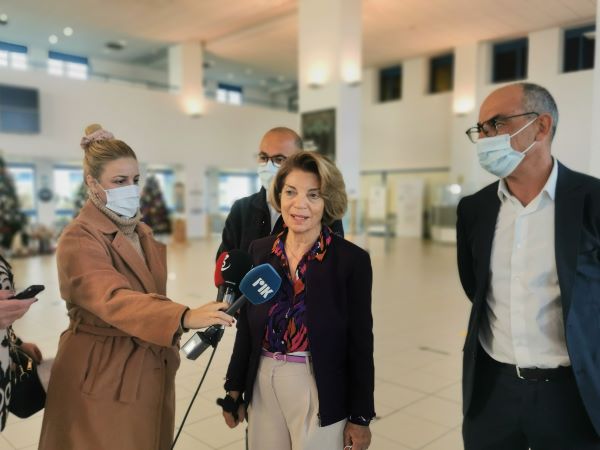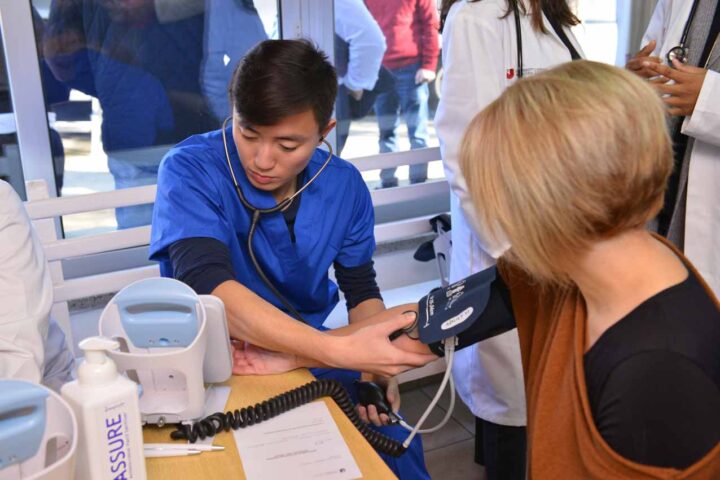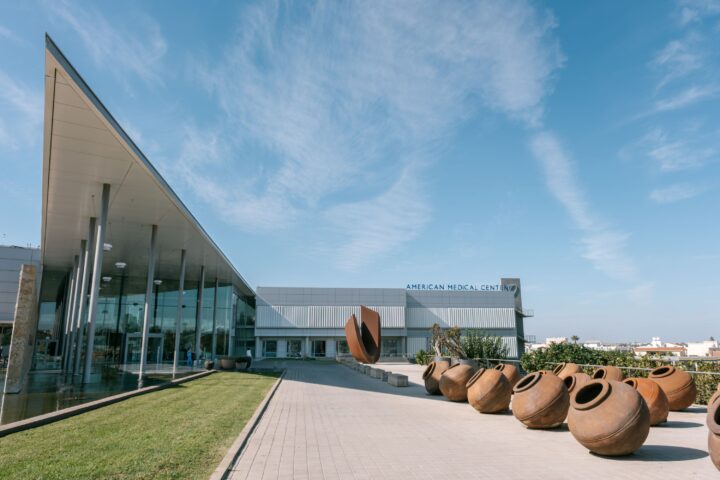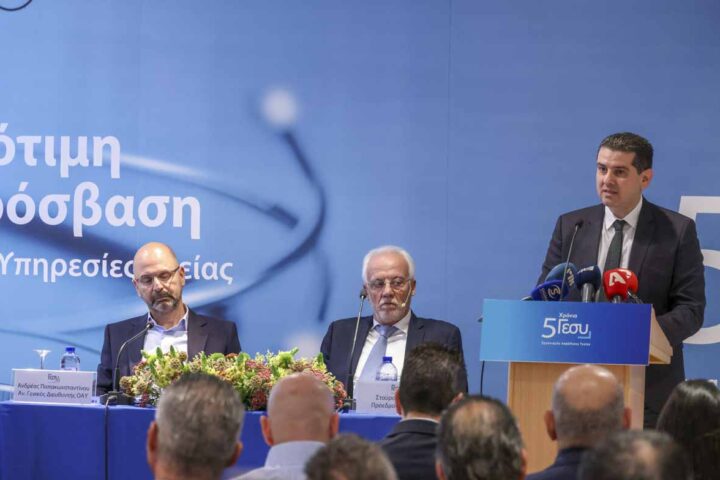The government has increased its budget on health spending by 14% and will table a supplemental budget to accommodate new needs that the health ministry was unaware of, Health Minister Popi Kanari said on Friday, during a visit to the Nicosia General Hospital.
Responding to critical comments from the patients’ association, OSAK, as well as earlier appeals from the state hospitals’ operator, the Health Insurance Organisation, Kanari said that the government has no intention whatsoever to deprive the General Health System of any funds, nor cut back on health spending.
She said that President Nikos Christodoulides has already called both the HIO and the state health services organisation, Okypy, to meetings in order to discuss any budget shortfalls, as well as staff shortages.
Kanari said that meetings have already been scheduled at the Finance Ministry.
“There is a lot that should be done and our efforts will focus on upgrading the health services and our relationship with the patients, who deserve more dignity and sensitivity,” the minister said.
Excellent clinics
She added that Nicosia General already has “excellent services and clinics” and that nine clinics, as well as five labs have already been certified.
As regards the rapid increase in viruses, as well as the Covid-19 cases among the elderly, especially within care homes, Kanari said that many older people are not being vaccinated because they do not have the consent of their relatives.
At present, 75 elderly patients are being treated in hospitals for the coronavirus.
The Makarios hospital for children in Nicosia was reported to have reached a bed occupancy rate exceeding 90%, primarily attributed to an influx of respiratory infection cases.
Dr. Avraam Elia, the Director of the hospital’s paediatrics department, said last week that, “this year’s surge in respiratory infections compared to the previous year is noteworthy, with daily admissions ranging from six to eight children”.
The predominant culprit, he said, is the RSV virus, leading to acute bronchiolitis in infants.
Of the hospitalised children, over half are under 12 months old. Lower respiratory infections, encompassing bacterial or viral pneumonia, rank as the second most prevalent ailment.
Dr. Elia foresees an uptick in cases following the reopening of schools after the Christmas and New Year holidays, a pattern observed annually.
Elderly
Charalampos Charilaou, the spokesperson for the state health services’ organisation (OKYPY), said that the number of coronavirus patients is higher compared to previous weeks, indicating community transmission.
He said that the hospitalised patients are mainly elderly, over the age of 75, with “quite a few cases coming from nursing homes.”
In relation to other infections, he mentioned that they are within allowed ranges.
“We are in the winter season, people gather in enclosed spaces, possibly without proper ventilation, which is why we have transmission. There is indeed an increased flow of patients with viral and bacterial infections, but it is within expected limits,” he added.
He emphasised that there is an increase in RSV, as expected.
“We have seen some cases of the flu, but in a mild form. The flu is expected to pick up from mid-January to the end of February,” he concluded.










